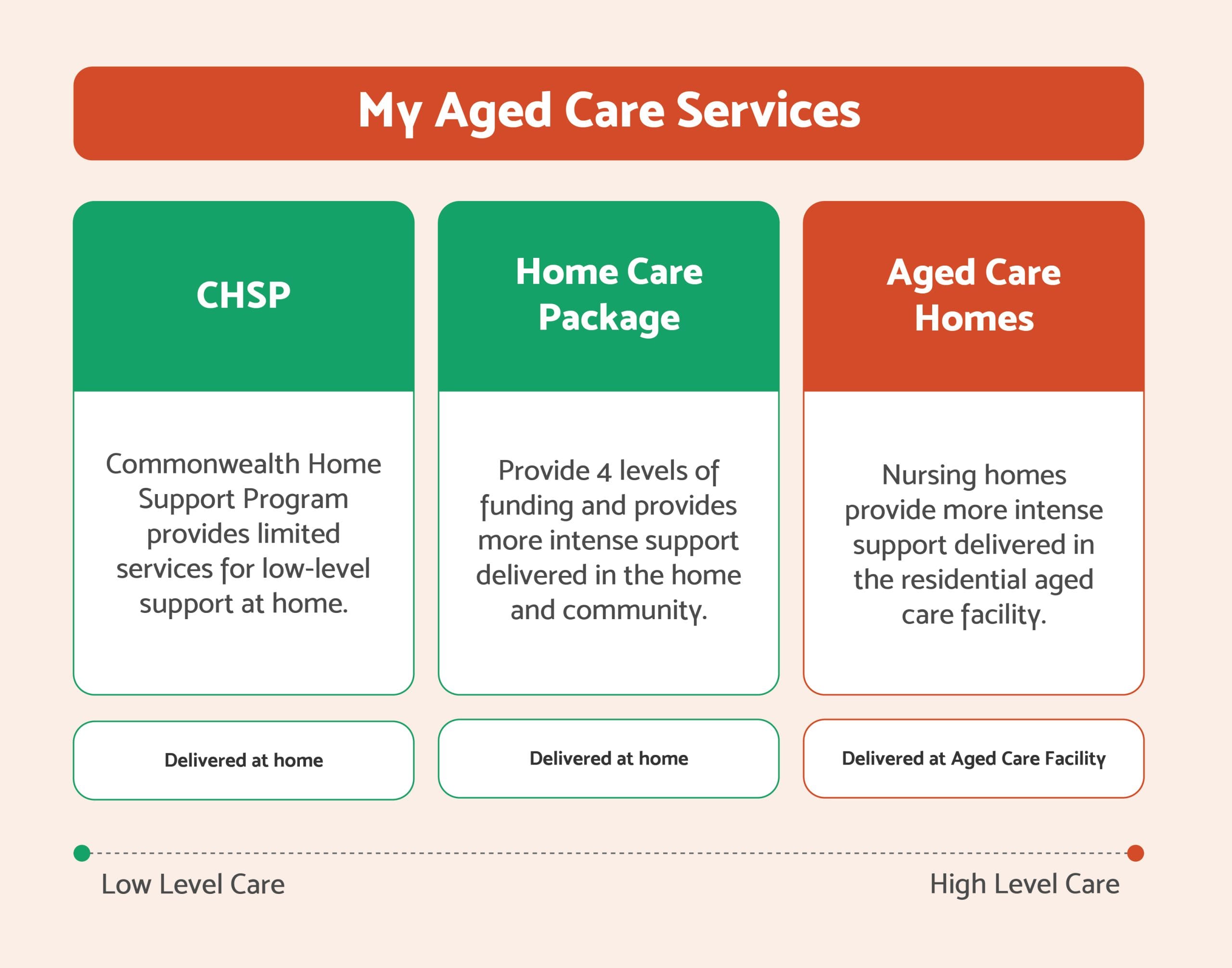All Regarding Home Treatment Solutions for Individuals With Disabilities: NDIS Registered Support
Home treatment services under the NDIS play a critical duty in supporting people with disabilities. These solutions are designed to improve daily living with tailored aid, varying from individual care to mobility support. Recognizing how to browse these options can be complicated. This review checks out the numerous aspects of NDIS home care, from offered solutions to the selection of providers, highlighting vital considerations for those looking for assistance. The trip toward equipped treatment starts below.
Understanding the NDIS and Its Purpose
The National Special Needs Insurance Policy Scheme (NDIS) functions as a transformative framework created to provide support and services for individuals with specials needs. Developed to enhance the lifestyle and warranty fair accessibility to important sources, the NDIS encourages participants by supplying personalized strategies tailored to their one-of-a-kind requirements. It aims to cultivate independence, making it possible for people to seek their individual objectives and aspirations.Through an organized strategy, the NDIS allots financing for numerous assistances, consisting of education and learning, work aid, and neighborhood participation. This all-encompassing plan not only focuses on immediate care but likewise highlights long-lasting developmental outcomes. By promoting choice and control, the NDIS encourages participants to pick their preferred service suppliers, ensuring that care aligns with their choices and values. Ultimately, the NDIS stands for a substantial dedication to enhancing the lives of people with specials needs, fostering inclusivity, and constructing a much more supportive society.
Kinds of Home Treatment Services Available
Numerous kinds of home treatment services satisfy people with specials needs, mostly focusing on personal treatment support and respite treatment choices. Personal care help offers vital support with day-to-day activities, while reprieve care supplies short-term alleviation for main caretakers. Comprehending these services is crucial for guaranteeing the well-being of both people with disabilities and their family members.
Personal Care Help
While maneuvering daily life can offer difficulties for people with impairments, individual care aid provides essential assistance customized to their special needs. This kind of home treatment service incorporates a series of activities made to promote self-reliance and boost quality of life. Personal treatment aides aid with daily tasks such as bathing, clothing, brushing, and toileting, ensuring individuals preserve personal hygiene and comfort. They may additionally assist with meal prep work, drug management, and flexibility support. By offering individualized treatment, these professionals equip people to involve even more totally in their daily routines and social activities. On the whole, individual treatment assistance plays a considerable function in promoting self-respect and freedom for those with handicaps, allowing them to thrive in their home environment.

Break Care Options
Reprieve treatment works as an important source for family members and caregivers of individuals with handicaps, providing temporary remedy for the demands of daily caregiving. This kind of service can take various kinds, including in-home reprieve treatment, where qualified professionals see the home to help with care jobs. Alternatively, families might select facility-based respite treatment, where people receive care in a specific atmosphere, allowing caretakers to take a break. Furthermore, some companies offer emergency break services for unexpected situations. These choices not just aid alleviate caregiver anxiety yet additionally promote the well-being of individuals with handicaps by supplying them brand-new experiences and social communication. On the whole, break care plays an important duty in sustaining both caregivers and those they care for.

How to Accessibility NDIS Home Treatment Solutions
Accessing NDIS home treatment solutions entails comprehending the qualification requirements established forth by the National Handicap Insurance Policy System. Individuals need to browse a structured application procedure to protect the needed support tailored to their requirements. This section will make clear both the eligibility needs and the steps involved in getting solutions.
Eligibility Standards Explained
To qualify for NDIS home treatment solutions, people must satisfy particular eligibility requirements that evaluate their demands and conditions. Initially, candidates have to be aged in between 7 and 65 years and have a significant and long-term impairment that affects their ability to execute day-to-day activities. In addition, they should be an Australian person, a long-term homeowner, or hold a Protected Special Classification Visa. The NDIS calls for evidence of the impairment, typically with clinical analyses or reports. Individuals must show that they require assistance to participate in social and economic life. These requirements guarantee that services are guided in the direction of those that truly require assistance, promoting self-reliance and enhanced top quality of life for people with disabilities.
Application Process Steps
When choosing a home care copyright for individuals with disabilities, it is crucial to take right into account numerous elements that assure the best suitable for their one-of-a-kind requirements. Initially, evaluating the company's credentials and experience in serving people with comparable specials needs is crucial. This assures that caregivers have the needed abilities and comprehending to supply proper support.Next, households must evaluate the range of services offered, along with the flexibility in treatment plans, to accommodate changing demands. Interaction is one more significant element; a provider that emphasizes clear dialogue can cultivate a collective environment in between caregivers and families.Furthermore, it is significant to analyze the service provider's credibility in the neighborhood, which can commonly be determined via evaluations and testimonies. Lastly, the compatibility of caregivers with the individual ought to not be neglected, as a positive relationship can improve the general care experience.
Funding and Budgeting for Home Treatment Providers
Exactly how can families effectively take care of the monetary aspects of home treatment solutions for individuals with disabilities? Initially, comprehending the various financing choices offered is essential. The National Impairment Insurance Coverage Plan (NDIS) gives financial backing customized to individual demands, permitting family members to assign funds for necessary solutions. Families must examine their NDIS strategy, making certain it lines up with called for home care services. support at home provider.Developing a detailed budget plan can help in tracking expenditures and managing funds a lot more successfully. This budget needs to include expected expenses for individual care, therapy, and break solutions. Additionally, households need to explore other monetary aid programs or subsidies that may be readily available at the state or local level.Regularly assessing and adjusting the budget plan assures that families continue to be on track and can respond to any kind of adjustments in treatment needs. Overall, positive monetary planning and resource understanding are crucial to effectively managing home care service costs
The Role of Support Coordinators in NDIS
Support coordinators play a click over here now necessary function in guiding the complexities of the National Disability Insurance Coverage Plan (NDIS) for individuals with impairments. They assist participants in understanding their NDIS plans, guaranteeing they make educated selections concerning their solutions and assistances. Support coordinators help browse the usually detailed internet of offered resources, connecting individuals to ideal providers and solutions customized to their special needs.Additionally, they aid in developing strategies that boost individuals' self-reliance and community participation. By promoting partnership between numerous stakeholders, including provider and member of the family, assistance coordinators develop a cohesive support network. They additionally review the efficiency and monitor of solutions, making required changes to enhance outcomes for individuals. Inevitably, support planners empower individuals to take control of their lives, promoting better autonomy and a greater quality of life within the framework of the NDIS. Their competence is important in aiding individuals accomplish their individual goals and ambitions.
Tips for Optimizing Your Home Care Experience
What actions can people take to improve their home treatment experience? Reliable communication with caregivers is crucial. Individuals must honestly express their requirements, choices, and concerns to ensure customized assistance. Developing a regimen can also produce a sense of stability and predictability, profiting both the individual and their caregivers.Another essential idea is to continue to be proactively associated with the care plan. Frequently reviewing and changing objectives with assistance coordinators ensures that solutions straighten with advancing needs. Additionally, individuals should advocate for themselves, seeking information on services and expressing preferences.Building a rapport with caregivers fosters a trusting relationship, enhancing the overall experience. Finally, utilizing available sources, such as area programs or more assistance teams, can supply added help and social interaction. By taking these steps, individuals can optimize their home treatment experience, causing improved well-being and satisfaction.
Frequently Asked Inquiries
Can I Select My Very Own Assistance Workers Via NDIS?
The specific asked whether they could pick their own assistance workers under the NDIS framework. Usually, participants have the adaptability to pick support employees, promoting customized treatment that lines up with their specific requirements and preferences.
What Takes place if My Needs Adjustment After Getting Support?
If a person's needs modification after receiving assistance, they should interact these changes to their provider. Adjustments can be made to the care strategy, guaranteeing that the assistance remains effective and appropriate for their conditions.

Exist Restricts on How Numerous Hours of Treatment I Can Receive?
The individual asked about potential limitations on the variety of treatment hours obtained. Usually, such limits may exist based on particular policies or funding setups, stressing the importance of reviewing contracts and guidelines on a regular basis.
Can I Make Use Of NDIS Financing for Home Alterations?
The inquiry of making use of financing for home alterations develops often. Normally, individuals may utilize NDIS funding for necessary alterations to their homes, ensuring accessibility and safety, contingent upon conference certain eligibility requirements and standards.
How Do I Handle Complaints Concerning My Home Treatment Solutions?
To deal with complaints concerning home treatment services, individuals need to initially document their concerns. They can communicate straight with their service copyright, looking for resolution, or escalate the concern to appropriate oversight bodies if required. Home treatment services under the NDIS play a pivotal see this page duty in supporting individuals with disabilities. Various types of home treatment services cater to people with disabilities, mainly focusing on personal treatment assistance and break care alternatives. home care providers melbourne. Individual care help supplies vital assistance with everyday tasks, while reprieve treatment offers short-term relief for primary caregivers. Family members might choose for facility-based break treatment, where individuals obtain treatment in a customized setting, permitting caregivers to take a break. Just how can households properly take care of the monetary aspects of home treatment services for individuals with handicaps?
Comments on “Top discussion points to ask your support at home provider”